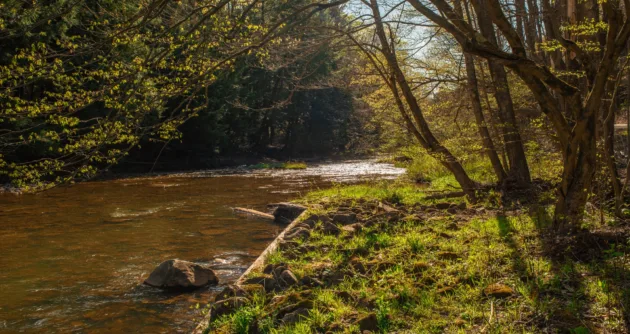The system is broken! At CELDF we hear this all the time from communities asking for our help. Yet, to our eyes, the system is actually working just fine for those who created it; it’s been fixed to work on behalf of corporations that are protected by our state and federal governments. Because it is fixed, most in-the-box “solutions” that we’re taught to pursue, as well-behaving citizens, will never actually get us the intended outcomes that we desire.
Some examples:
- Signing on-line petitions: While they may demonstrate some measure of public opinion, the petition signatures themselves change nothing. In order to actually change something, more action – much more action – is required than simply clicking a button online.
- Writing comments to regulatory agencies: There is a reason that commenting on permits and proposed projects is called “public comment.” The public’s comments are simply public venting. The comments have no legal bearing on whether or not the project is approved.
- Hiring environmental organizations to represent our community: Most major environmental organizations are well-meaning, but the strategies they pursue will not stop the harm (see “The Box” on pg 4). Instead, most environmental organizations work with you to get the best permit possible. Rather than stopping the harm, it’s about begging to get harmed a little less.
- Writing to our representatives: Even if you have a sympathetic state or federal representative, their voice is just one in a sea of others in the legislature. In addition, the legislature itself operates within a broader structure of law and governance designed in such a way that we can’t get what we want, where we live. Legislators find themselves handcuffed by the larger constitutional structure that prevents them from enacting meaningful change.
- Working to elect “better” representatives and/or judges: See the previous comment. The system itself is fixed, and so even having the best people possible in our legislatures and courts ensure that their actions are defined and orchestrated within a broader system of law and governance. Until the structure of law itself is changed, our legislators and judges find themselves with their hands tied.
In addition, note that all of the above options assume that the power lies somewhere else. These options have nothing to do with governing our communities. They’ve got everything to do with appealing to someone or something else to help us get the best deal we can within the exisiting structure of law and governance.
Past people’s movements in this country – including Abolitionists, Suffragists, worker rights, and civil rights – found themselves with a fixed system of law that provided them with no real remedies. And that’s where our communities find themselves today. Abolitionists were not attempting to “get a better deal,” or institute a slave regulatory agency. Suffragists were not okay with working through their legislatures to be able to vote in odd-year elections, or have their votes count for 5/8 of a vote.
And so, as long as our activism remains confined within a fixed system that we didn’t create, using tools that were never intended to help us win, we will be left pursuing disempowering tools that, at best, regulate the rate at which our communities are harmed.
The system is fixed. And we need to break it – and create something new in its place that secures and protects rights, and that finally legalizes our communities’ pursuit of sustainability.


